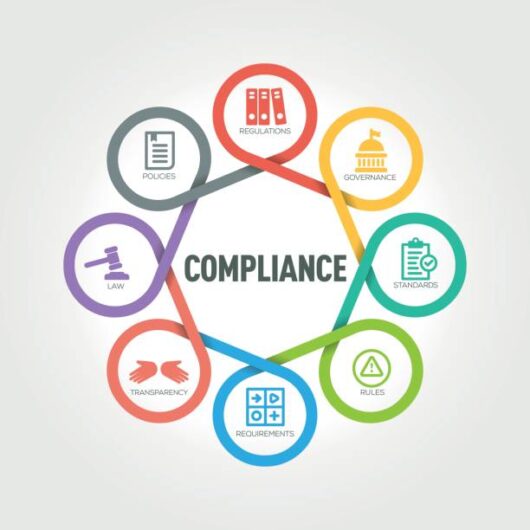Compliance policy training is a way of explaining your company’s policies and procedures. It’s a great way to help your employees understand the rules they need to follow in their work and to ensure that everyone knows how to report issues.

This is especially important in industries like healthcare or financial services, where employees are more likely to come across laws and regulations that affect their day-to-day work.
Protects Your Company From Legal Action
It is a good idea to have labor compliance policy training as it will protect your company from legal action. It will also help employees understand what is expected of them in the workplace.
Having a strong culture of compliance is important as it ensures that all employees are treated fairly and feel safe in their work environment. This helps to build a positive reputation for the company.
The consequences of non-compliance can be serious and costly, including fines, revenue losses, and damage to the organisation’s reputation.
Employees will not want to risk being fired or reprimanded for breaking the rules, so it is essential that they know what is expected of them.
It is also a good idea to provide compliance policy training on a regular basis, as the laws and regulations change frequently. This way, everyone will be up-to-date on their requirements and have the ability to share information with other members of the team.
Boosts Employee Morale
Employees who know how to act ethically in the workplace can flourish. They’re aware of their responsibilities and boundaries, and they have the skills to work efficiently with less supervision.
Compliance training can also boost employee morale and make them feel like they’re doing something meaningful, which helps reduce turnover rates and increase productivity overall. It can even give them the confidence to speak up if they notice an issue that goes against their company’s Code of Conduct.
To ensure that your employees stay engaged and retain the information they learn, try making your training relevant to their position and deliver it in small, manageable bites (microlearning). It’s also a good idea to add interactive scenarios or simulations so that they can practice tackling different compliance challenges.
Enhances Customer Satisfaction
Compliance policy training ensures employees understand their roles within an organisation and the standards of conduct they must meet. This can help to create a pleasant and safe environment in which employees can work and perform to the best of their ability.
As laws and regulations can change rapidly, compliance training should be a regular occurrence. This is especially important for topics like data protection and privacy, which often involve personal information.
Keeping up-to-date on these policies prevents legal complications which can result in high costs and poor productivity among employees. It also provides a positive image for the company in the eyes of customers and prospects, as they will be aware that the business is committed to ethical practices.
A good compliance training program should be engaging and provide learners with information that they can easily understand and retain. It should also be tailored to fit the needs of different types of employees and industries.
Reduces Costs
Several federal, state, and local laws require that employers train their employees on safety rules, emergency procedures, and other issues. Employees who don’t have a good understanding of these regulations risk injuries and fines from the company or regulatory agencies.
In addition, non-compliance can damage a company’s reputation and cause monetary loss. This can lead to a lower productivity level and a higher turnover rate.

Compliance training can help your company avoid these types of consequences, and it also saves you money in the long run by avoiding legal action. It also helps maintain a safe and friendly work environment for all employees and stakeholders.
Using learning technology to deliver compliance training reduces costs by enabling all employees to access it at their desks, reducing the need for travel and hotel expenses. Moreover, it allows you to update and replace content quickly and easily, ensuring that your employees remain up-to-date on changes in the law or the company itself.